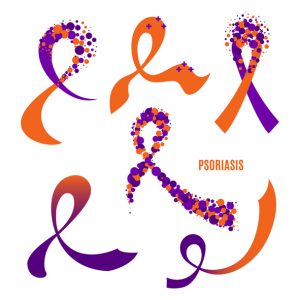 Psoriasis is a chronic autoimmune disease, meaning that your body’s immune system is attacking its own normal tissue.
Psoriasis is a chronic autoimmune disease, meaning that your body’s immune system is attacking its own normal tissue.
Psoriasis particularly affects your skin, speeding up the growth cycle of cells. This most commonly presents in the form of a rash, or itchy, scaly patches on the knees, elbows, trunk, and scalp, among other parts of your body.
The rashes created by psoriasis may flare up in cycles of weeks or months. In people who are genetically pre-disposed to developing the disease, it may be triggered by infections, cuts, burns, or medications.
Psoriasis may also lead to psoriatic arthritis and psoriatic disease. Both of these may be treated with the use of prescription medications or using creams and ointments.
Treatments for psoriasis may include topical therapy, light therapy, and oral or injected medications.
If you’re suffering from symptoms associated with psoriasis or psoriatic disease, a dermatologist can provide an accurate diagnosis and create a treatment plan. If your symptoms potentially indicate psoriatic arthritis, a consultation with a rheumatologist may be recommended.
There is no cure for psoriasis, so the treatment plan you follow will focus on managing your symptoms and providing as much relief as possible.
The most effective way to take action against your psoriasis is to visit a medical professional and begin treatment as soon as possible. To schedule an appointment at Jamaica Hospital’s Division of Dermatology by calling (718) 206-6742.
All content of this newsletter is intended for general information purposes only and is not intended or implied to be a substitute for professional medical advice, diagnosis or treatment. Please consult a medical professional before adopting any of the suggestions on this page. You must never disregard professional medical advice or delay seeking medical treatment based upon any content of this newsletter. PROMPTLY CONSULT YOUR PHYSICIAN OR CALL 911 IF YOU BELIEVE YOU HAVE A MEDICAL EMERGENCY.
